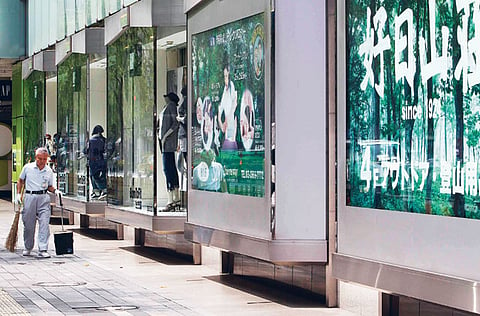Japan consumer prices fall, deflation persists
Situation unlikely to ease much in weak economy as BOJ under pressure to take further action on surging yen

Tokyo: Japan's core consumer prices fell for the 17th straight month in July on an annual basis in a sign that deflation remains deeply entrenched, boding ill for a fragile economy faced with a surging yen.
Japanese policymakers are struggling over how to put a cap on the yen, which hit a 15-year high against the dollar this week and threatens to derail an export-led recovery.
Financial markets now expect the firmer yen will delay Japan's exit from deflation and nudge the Bank of Japan into easing monetary policy further, spurring a recent bull flattening of Japan's bond yield curve.
"Given the yen's gains, exports will slump temporarily and slow Japan's economic recovery. Japan will thus remain in deflation for another two to three years," said Takeshi Minami, chief economist at Norinchukin Research Institute.
Interest rates
"The BOJ may expand its fund-supply tool next month, but the effect on short-term interest rates will be limited.
"It needs to take bolder steps to beat deflation and the strong yen, such as increasing outright government bond purchases, although that's unlikely to happen soon."
Fears of deflation are no longer just limited to Japan.
The G3 nations could all see their yield curves flatten further if expectations for additional central bank easing heighten amid signs that their economies are losing momentum, analysts say. Japan's core consumer price index (CPI), which includes oil products but excludes fresh food prices, fell 1.1 per cent in July from a year earlier, data from the internal affairs ministry showed on Friday, matching the median market forecast. It was slightly bigger than a 1.0 per cent drop in June.
The yen eased slightly against the dollar to 84.75 yen (Dh3.6) after the report that Kan was to speak, but it is still up some 10 per cent so far this year.
The core inflation index, which excludes food and energy prices and is similar to the core index used in the United States, fell 1.5 per cent in July from a year earlier. Falls in the core CPI have been slowing since last summer as the economy's recovery from its worst post-war recession has helped to narrow the output gap.



